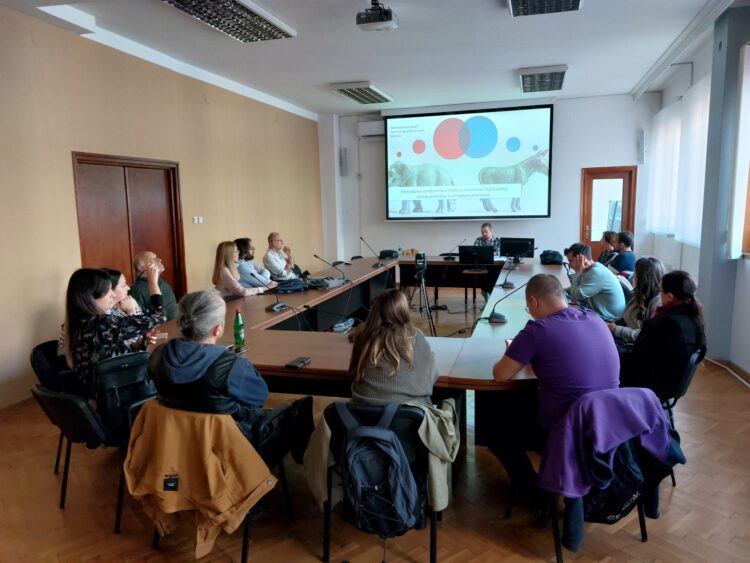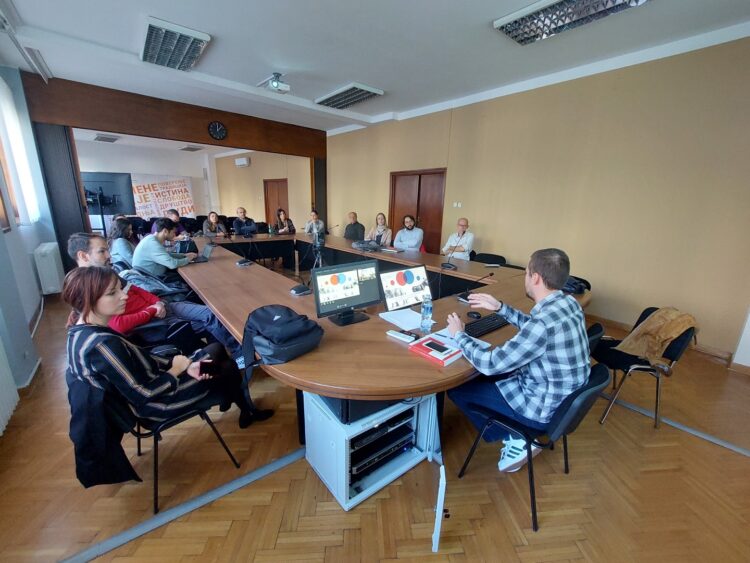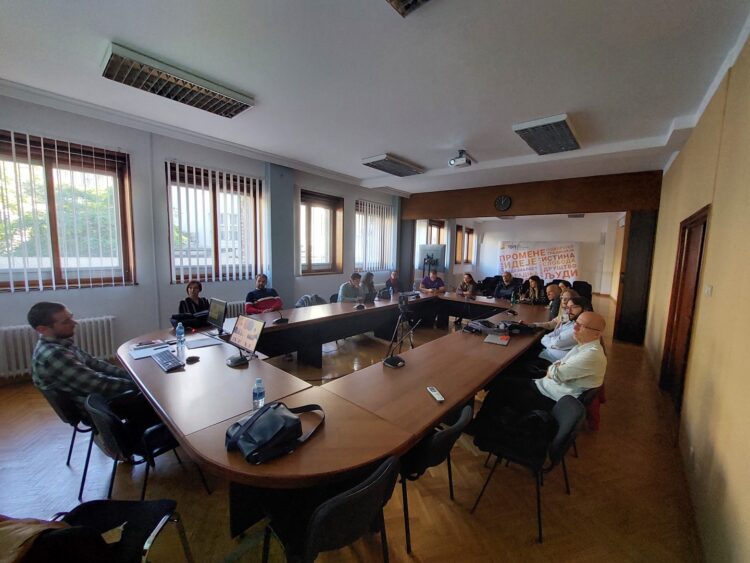As part of the cycle of lectures by new researchers at the Institute of Social Sciences, Milan Blagojević, a Researcher Trainee from the Centre for Politicological Research and Public Opinion, held a lecture on September 28, 2022 in the Great Hall of the Institute of Social Sciences on the topic “Internal Conflicts and Foreign Policy of the US between Interventionism and Isolationism”.
The standpoint of the lecture is that the United States today is not nearly as monolithically unique and homogenous as it might seem to the average observer. Such a state of affairs became particularly evident after Donald Trump’s victory in the 58th presidential election, which polarized the American public more than any event in recent history. However, the ideological differences that have intensified in the last few years are not new and are more complex and older than the Trump-Clinton line of conflict.
During the lectures, it was repeatedly emphasized that Republican-Democratic disagreements are not limited only to issues of approach and methodology, but behind them are deeply and fundamentally opposing views of the world, the scale of which is often lost sight of. Two years after taking office, President Trump, with his course of isolationist political nativism, has brought the Republican Party closer to its ideological roots.
During the discussion, it was especially emphasized that US foreign policy, although often sidelined by issues much closer to the average voter, such as migration, taxation or healthcare policy, is one of the arenas in which the aforementioned ideological positions face off.
However, the different political poles that mark American internal policy (conservative and liberal) are projected onto the entire world due to America’s transcontinental influence, and the global balance of power between these poles will apparently be decided on the American internal plan.



